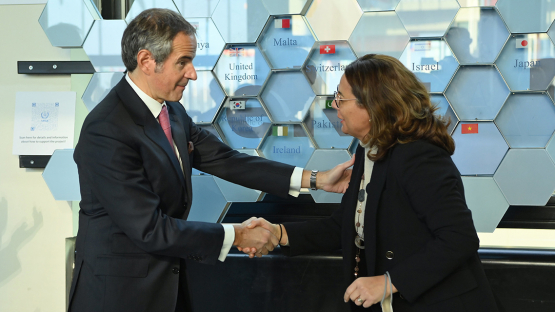With a steady increase in the number of donor countries, including both developing and first-time contributing nations, the latest phase of a major project to refurbish IAEA’s nuclear applications laboratories in Seibersdorf is approaching the next milestone: construction start.
At a hybrid event on 25 November, held on the margins of the IAEA’s Board of Governors meeting, the IAEA recognized seven new donors to the Renovation of the Nuclear Applications Laboratories (ReNuAL2): Ireland, Kazakhstan, Kenya, Malta, Montenegro, Portugal and Viet Nam.
The twelve laboratories of the IAEA are a unique feature within the United Nations family. Eight of those are in Seibersdorf, southeast of Vienna, conducting applied research and development, delivering training and capacity building to Member States and providing technical and analytical services that respond to their development needs. Areas of focus range from food and agriculture to human health, environment and nuclear instrumentation.
“Almost every day I am reminded of real-world problems like cancer, environmental issues and climate change, for which our laboratories contribute toward solutions,” Director General Rafael Mariano Grossi said at the event. “We need to complete their modernization to ensure they are fit for purpose to keep doing so.”
The recently announced contributions to ReNuAL2, comprising the construction of a new laboratory building, replacement of ageing greenhouses for agriculture and the refurbishment the Dosimetry Laboratory, will support the project’s swift progress. However, about €6.7 million of the total €24.5 million project costs are still needed to be raised in order to have the full funding on hand at the time of a contract signing. Securing this money swiftly will prevent the risks of cost escalation in a challenging and unpredictable market landscape. If the money is raised on time in 2022, the work will be completed by 2024.
The diversity of countries that come together to complete the laboratories’ modernization is a testament to the important work they do to improve Member State capacities to confront the challenges of today and tomorrow, many participants at the event highlighted.
…the laboratories play a vital role in developing applications from food safety and pest control to life saving medical treatments…






